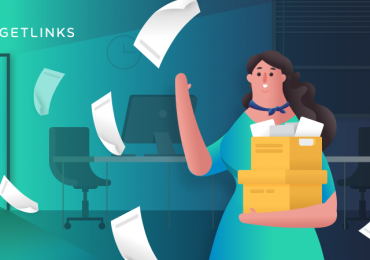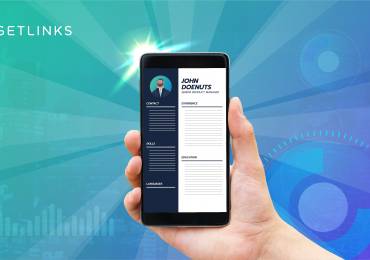Blockchain Revolution: 5 Industries That Will Benefit the Most From Blockchain in Southeast Asia
It might not feel that way, but Southeast Asia is at the forefront of the blockchain development revolution.
Startups love the region’s openness to technology while governments enjoy the influx of talent and money injected into their local economies. Of course, though, it’s the citizens that will benefit the most.
From finance to shipping, blockchain can create vast improvements and even create opportunities where none existed. The potential is so great because the technology offers a means of transparency and security, not to mention reducing costs; all extremely important and attractive for any business.
Here are five major areas where blockchain is poised to become a game changer in Southeast Asia.
1. Finance
FinTech is the area you’ll see the most drastic change in the years to come.
Many Southeast Asians don’t have a bank account and to add to the difficulty, they also frequently need to send money back home. But because they’ve been eager to adopt smartphones and the internet, it’s the perfect setting for blockchain development.
Singapore, Thailand, and Indonesia have created government-sponsored projects to bring blockchain into the public financial sector. In Singapore, the major blockchain development is Project Ubin, launched by the Monetary Authority of Singapore. The project will explore the use of digital tokens as virtual Singapore dollars to allow faster financial transactions domestically and internationally. This is similar to Thailand’s Project Inthanon, the Bank of Thailand’s project to explore the potential of creating a central bank digital currency. The country also has created the Thailand Blockchain Community Initiative, a collaboration of 14 banks and seven corporations, opening up more avenues for banks to embrace blockchain. Bank Indonesia, Indonesia’s central bank, has announced plans to launch its own digital currency, however, it’s not decentralized; this digital rupiah will be issued by Bank Indonesia.
Startups are also working on creating a system of low-cost remittance and domestic transfers for the “unbankable” citizens of Southeast Asia. Along with Thailand’s popular OmiseGO (OMG), Malaysia’s Lala World and the Philippines’s Coins.ph have also created networks that work on solving that problem.
Microfinance is another big draw for blockchain developers. Cambodia’s DApact is providing low-interest rate microloans to Cambodians with their blockchain-based framework. Myanmar’s BC Finance, the country’s largest microfinance institution, is working with Japanese software company Infoteria to test the use of blockchain in the company’s business.
2. Energy
Not only the electricity bills but the production of electricity itself will be managed and monitored via blockchain.
Energy is also extremely attractive for blockchain. The energy grids for much of Southeast Asia, like the Philippines, are not reliable and sometimes are unable to reach completely into rural areas. At the same time, in countries like Singapore and Thailand, allowing blockchain to become a part of the generation, payment, and records process promises an industry of efficiency and trust.
Thailand’s BCPG, the renewable energy branch of the Bangchak oil refinery company, has partnered with real estate developer Sansiri to power Thailand’s first smart community with blockchain-based solar rooftops. While in the Philippines, Shanghai-based Energo Labs is using blockchain to manage microgrids, bringing electricity to the more rural parts of the country.
With Singapore’s Electrify startup, consumers use smart contracts to communicate with electricity suppliers. These blockchain-based contracts will contain the terms between both the buyer and seller, as well as enacting the agreement. Electrify will also collect and display the rates of electricity fees in the country.
3. Agriculture
From product tracking to stock checking, the agriculture sector is about to get a high-tech facelift.
An already very important industry in much of Southeast Asia, Agriculture can use blockchain to improve farming and distribution practices. The sector can increase efficiency, reducing the risk of contamination and spoilage. Retailers could track food products from all their suppliers and distributors and share that knowledge to their end consumers, including dates of production, storage temperatures, and origin and shipping details.
Cambodia’s Blockchain For Livelihoods From Organic Cambodian Rice (BlocRice) is embracing the digital ledger. An Oxfam project, the system creates a smart contract between organic farmers, rice exporters, and retailers. All parties involved can digitally verify and enforce the contract. It also introduces cashless payments for the farmers and consumer apps that trace the route of the rice they buy.
Laos’ Bananacoin is taking a different approach, using the popularity of cryptocurrencies to help fund their goal of organically growing a healthy, but expensive variety of bananas call “Lady Finger.” The Bananacoin is tied and protected by the market price of 1kg of bananas in USD.
4. Shipping and Travel
Buying your plane ticket or tracking the status of your online order will be made better and safer with blockchain technology.
The logistics sector is ready for blockchain technology because many current systems already have checkpoints and tracking in place. Allowing blockchain to record those transactions could be an easy step. Thailand is already making headway in this area with the Thailand Post. The country’s postal system will use blockchain technology to track high-value deliveries like expensive luxury items to make sure they reach the intended recipient.
There’s also a potential for blockchain development in the travel industry as well. Tasks such as ticketing, rewards programs, and tracking flights can become part of the blockchain, keeping everyone informed and up-to-date. Singapore’s Tripio has created a travel marketplace that connects customers with service providers. The marketplace uses smart contracts to encourage positive behaviour by rewarding its users, both travellers and service providers.
5. Social Applications
SEA governments are aiming to use blockchain for knowledge exchange and data distribution with their citizens.
Blockchain doesn’t have to be solely for major public industries either. It has the potential to change the way we communicate with each other as well as control the data we share online.
Similar to the US’s Steemit, Cambodia’s Serey social media platform was created to encourage Cambodians to share knowledge, rewarded by the platform’s cryptocurrency called Serey coins. This system motivates its users to keep developing, posting, and curating new and interesting content.
Announced in early September, Singapore’s Jupiter Chain project and Deloitte have partnered to create an intriguing data exchange platform for Southeast Asia. Users will be able to control and share their personal information while also getting rewarded for voluntarily contributing it. The blockchain technology will provide a transparent agreement with businesses and users who want to monetize their data.
As more interested investors and startups come into the region, it can only get better for the citizens and for this wonderful technology. So stay tuned and get excited! Southeast Asia will be an impressive place to see the growth of blockchain development firsthand.








